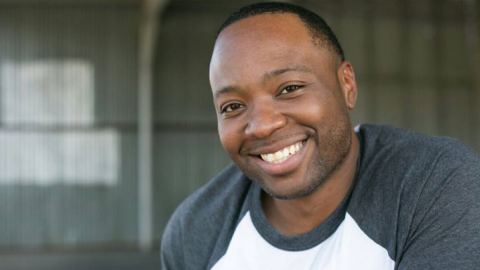A Former Inmate Turned Entrepreneur Solves Problems in the Prison System with a Fresh Approach

Only recently, and mainly due to the popularity of TV shows like Orange Is The New Black, have the problems affecting millions of people in the prison system (2.2 million in the United States) been brought to the attention of the general public. Still, to truly understand the system and be able to solve some of its problems, one would need to actually have experienced it from the inside. Such is the case with Frederick Hutson, a former inmate who secured $1 million in funding for his company Pigeonly and is also joining Y Combinator this winter.
Hutson has had a knack for business since he was young. At 13, he would go to his neighbors in a Brooklyn high-rise to ask them if they needed small repairs around the apartment. At 19, he launched and later sold a window-tinting business. At 21, he opened a cellphone store. At 24, however, he was arrested and sentenced to 51 months in prison for distributing marijuana, as part of a large operation.
Naturally, going to prison didn’t stop his entrepreneurial inclinations and ability to see and solve problems. In the course of his sentencing, Hutson was moved to four different prisons and quickly noticed one of the biggest problems inmates had to face — keeping in touch with their loved ones.
First, it turned out there was no easy way to locate an inmate. Hutson’s own friend and future co-founder, Alfonzo Brooks, spent two months doing research before he could find Hutson and send him letters. In addition, making phone calls from prison was so expensive that it prohibited many inmates from talking to their friends and families — 300 minutes could cost $70. It was also really difficult to receive photos from the outside, making it hard for inmates to follow the lives of friends and families throughout the years.
“It was frustrating to me how hard it was, and expensive it was for me to keep in touch. It was excruciatingly difficult,” says Hutson. “Even though you have family that loves you and cares for you, it’s very hard for people who live in the digital world to stay connected with someone who lives completely in the analog world. It’s easy to send a text message; it’s easy to send an e-mail, but it’s very difficult to take out time to write a hand letter, and what this does is make it difficult for the inmates to maintain these social connections, so when they are released, it’s hard for them to reintegrate.”
Meanwhile, studies have consistently found that prisoners who maintain close contact with their family members while incarcerated have better post-release outcomes and lower recidivism rates.
Hutson and Brooks’ company, Pigeonly, which they founded in 2012, helps families connect to their incarcerated loved ones. They have built a comprehensive database that helps customers find federal prisoners in penitentiaries across the U.S. by a simple name search. Their second service, Fotopigeon, allows friends and family members to easily send photos to inmates through their smartphones, computers, and tablets. The company takes care of the printing and shipping of the photos, so they pass through prison mail check. The third service, Telepigeon, is a long-distance call service that gives inmates unlimited minutes for $9.99 a month by creating a local number the prisoner can use.
Pigeonly’s market is big and untapped. According to Hutson, 1 percent of the U.S. population has a loved one who is in prison and he estimates it’s a $2 billion market. Despite this, he had hard time finding investors until NewMe, an accelerator, which focuses on entrepreneurs from underrepresented minorities, saw the potential in his business. This underscores the need for Silicon Valley to identify and invest in entrepreneurs with diverse backgrounds who may have unique outlooks on problems and their solutions.
Today, Pigeonly is supporting about 2 million minutes a month on the phone calls, and sending a quarter-million photos every month. It employs 16 people, some of them with felony records.
Photo: Pigeon.ly




